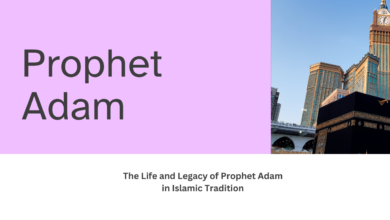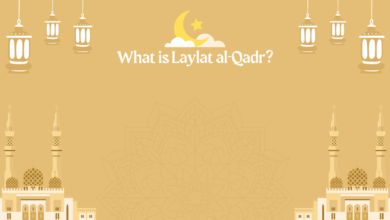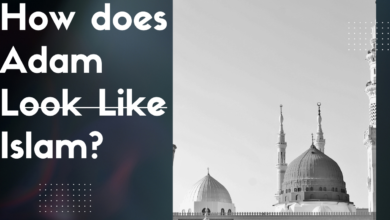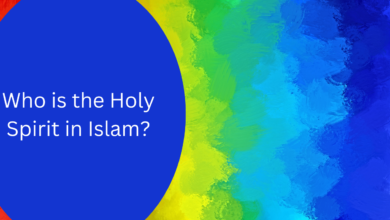
Islamist Kya Hai?
Islamism, often referred to as political Islam, is a diverse political ideology that seeks to shape political, social, and legal systems based on Islamic principles. It is distinct from the religion of Islam itself and is concerned with the governance of societies in accordance with Islamic values.

Introduction
“Islamism” is a term that has gained prominence in discussions related to global politics and security in recent decades. While it is often used to describe various political movements and ideologies that seek to establish Islamic principles as the basis for governance, the concept is complex and multifaceted. To gain a better understanding of what “Islamism” is, one must delve into its origins, manifestations, and the diverse interpretations it encompasses.
Defining Islamism
Islamism, often referred to as political Islam, is a broad and diverse ideology that aims to shape political, social, and legal systems based on Islamic principles. It is distinct from the religion of Islam itself, which is a faith practiced by over a billion people worldwide. Islamism, on the other hand, is a relatively modern political ideology that has evolved over the past century.
Also check.
- What is Haram?
- Who is the Current Caliph of Islam?
- What does Muslims Believe in?
- Quran Kya hai?
- What’s the difference between Catholic and Christian?
Origins of Islamism
The roots of Islamism can be traced back to the 19th and 20th centuries in the context of the decline of the Islamic Caliphate and the increased influence of Western colonial powers in the Muslim world. Intellectuals and activists in response to perceived Western encroachment began advocating for a return to a more authentic form of Islam and for the establishment of Islamic states. Prominent figures like Sayyid Qutb and Hasan al-Banna in Egypt and Abul Ala Maududi in the Indian subcontinent played significant roles in shaping Islamist thought during this period.
Key Concepts of Islamism
- Sharia Law: A common thread among Islamist movements is the desire to implement Sharia law, a set of Islamic legal principles, in both public and private life. However, the interpretation of Sharia can vary widely, from the more moderate and adaptable approach to the strict and literalist interpretations.
- Islamic State: Many Islamists aspire to create Islamic states governed by Islamic principles. These states could range from a theocracy where religious leaders hold power to a state that integrates Islamic principles into its legal system without being solely ruled by religious authorities.
- Resistance to Western Influence: Historically, Islamism has often been linked to resistance against Western influence in Muslim-majority countries. Some see Western values as a threat to Islamic identity and seek to establish a political system that is more in line with Islamic traditions.
Diverse Manifestations of Islamism
It’s important to recognize that Islamism is not a monolithic ideology. There are various manifestations of Islamism, ranging from non-violent political parties to militant extremist groups. These variations can be understood through the following categories:
- Moderate Islamism: Some Islamist movements, like the Muslim Brotherhood in Egypt and the AKP in Turkey, have chosen to engage in the democratic process and operate as political parties. They advocate for the implementation of Islamic principles within the bounds of existing political systems.
- Radical Islamism: On the other end of the spectrum are radical Islamist groups, such as Al-Qaeda and ISIS, that employ violence and terrorism to achieve their objectives. They often reject democracy and seek to establish Islamic states through force.
- Salafism: A puritanical and literalist interpretation of Islam, Salafism is associated with a desire to return to the practices of the early Muslim community, or Salaf. Some Salafists are politically engaged, while others are militant.
- Nationalist Islamism: In some cases, Islamist movements focus on national identity and resistance against foreign occupation, as seen in the Palestinian Hamas or the Lebanese Hezbollah.
Conclusion
Islamism is a complex and multifaceted ideology with a wide range of interpretations and manifestations. It is essential to differentiate between moderate and radical expressions of Islamism and avoid painting all Islamists with the same brush. Understanding the nuances of this ideology is crucial for addressing the challenges it poses and for promoting peaceful coexistence and dialogue in an increasingly interconnected world.

FAQs
What is Islamism?
Islamism, often referred to as political Islam, is a diverse political ideology that seeks to shape political, social, and legal systems based on Islamic principles. It is distinct from the religion of Islam itself and is concerned with the governance of societies in accordance with Islamic values.
What are the origins of Islamism?
The roots of Islamism can be traced back to the 19th and 20th centuries in response to the decline of the Islamic Caliphate and Western colonial influence in the Muslim world. Key figures, such as Sayyid Qutb, Hasan al-Banna, and Abul Ala Maududi, played significant roles in shaping early Islamist thought.
What are the key concepts associated with Islamism?
Key concepts of Islamism include the implementation of Sharia law, the establishment of Islamic states, and resistance to Western influence. However, it’s important to note that interpretations of these concepts can vary significantly among different Islamist movements.
Are all Islamists extremists or terrorists?
No, not all Islamists are extremists or terrorists. Islamism is a diverse ideology, and while some groups or individuals may employ violence to achieve their objectives, many Islamist movements engage in non-violent political activities and operate within democratic frameworks.
What is the difference between moderate and radical Islamism?
Moderate Islamism involves the peaceful pursuit of political objectives within existing political systems. Radical Islamism, on the other hand, often resorts to violence, terrorism, or militant tactics to achieve its goals and may reject democracy in favor of a more extreme interpretation of Islamic governance.




